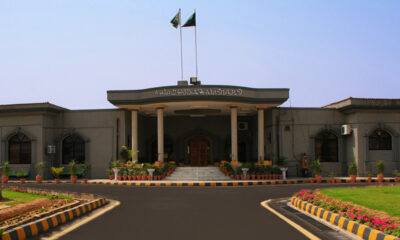- Up to 9% of GDP will likely be lost due to climate change.
- Irrigation water shortages may dent GDP by over 4.6%.
- Air pollution could impose a 6.5% per year loss of GDP.
ISLAMABAD: Increasing climate change risks could contract Pakistan’s annual Gross Domestic Product (GDP) rate significantly in the next 28 years, a World Bank report revealed recently.
“The combined risks from the intensification of climate change and environmental degradation, unless addressed, will further aggravate Pakistan’s economic fragility; and could ultimately reduce annual GDP by 18-20% per year by 2050, based on the optimistic and pessimistic scenarios,” a report recently published by the World Bank said.
Between 6.5% and 9% of GDP will likely be lost due to climate change (in the optimistic and pessimistic scenarios, respectively) as increased floods and heatwaves reduce agriculture and livestock yields, destroy infrastructure, sap labour productivity, and undermine health, the report added.
Additionally, water shortages in agriculture could reduce GDP by more than 4.6%, and air pollution could impose a loss of 6.5% of GDP per year.
The use of water for non-agricultural purposes is likely to increase significantly with climate change.
Under a high-growth (4.9% per year) and high-warming (3°C by 2047) scenario, water demand is projected to increase by almost 60%, with the highest rates of the increase coming from the domestic and industrial sectors, the report said.
It added that climate warming would account for up to 15% of this increase in demand. This heightened demand will result in unintended consequences that deprive downstream areas of water rights. The competition among sectors will necessitate inter-sectoral tradeoffs that will likely be made at the expense of water for agriculture.
It is projected that, in the next three decades, about 10% of all irrigation water will need to be repurposed to meet non-agricultural demand.
Freeing up 10% of irrigation water without compromising food security will be a complex challenge that will require substantial policy reforms to incentivise water conservation and increase water use efficiency in the agricultural sector and a shift away from water-thirsty crops as well as better environmental management.
The projected costs of a forced reallocation of water out of agriculture, to meet non-agriculture demands, without such steps, could reduce GDP in 2047 by 4.6%.
The losses projected here are thus the costs of forced reallocation of water to serve other urgent needs, including allocations for water, sanitation, and hygiene (WASH) and urgent environmental flows to sustain critical ecosystem services.
Damage induced by climate-related extreme events will likely have economy-wide impacts on growth, fiscal space, employment, and poverty.
Global warming and extreme events affect economic activity through multiple transmission channels: impacts on lives, infrastructure and assets, and livelihoods, which can result in lost economic growth, worsening poverty and longer-term threats to human capital and productivity.
Existing macro models can help assess the expected scale of such events.
The report added that household poverty is expected to decline over time, but even a 9% decline in GDP by 2050 is enough to stall poverty reduction, with disproportionate impacts on rural households.
By 2030, the urban poverty rate is expected to be half that of rural areas. By 2050, urban poverty is projected to decline further, to 10%, while rural poverty remains in the 25–28% range.

 Latest News2 days ago
Latest News2 days ago
 Latest News3 days ago
Latest News3 days ago
 Latest News2 days ago
Latest News2 days ago
 Latest News2 days ago
Latest News2 days ago
 Latest News3 days ago
Latest News3 days ago
 Latest News3 days ago
Latest News3 days ago
 Latest News2 days ago
Latest News2 days ago
 Education3 days ago
Education3 days ago
























